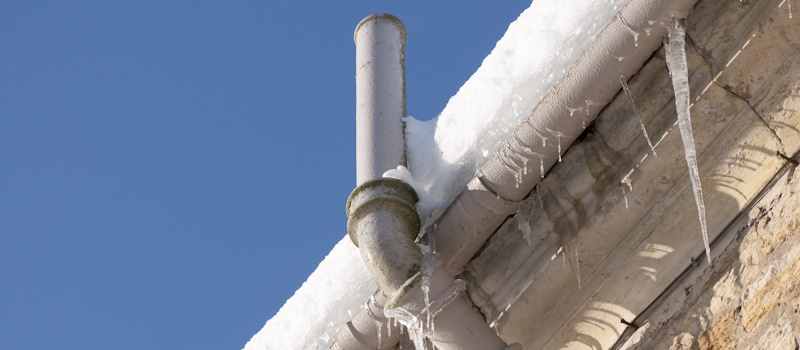Winter Preparation: Prevent Pipes Bursting in Your Home
Winter Preparation: Prevent Pipes Bursting in Your Home

Winter Preparation: Prevent Pipes Bursting in Your Home
Each winter, burst pipes add up to millions of dollars in water damage to personal property during periods of freezing temperatures. The good news is that pipe eruptions can be largely prevented with a bit of preventative maintenance. In this post, we'll cover why pipes burst, how to prevent them from bursting, and what to do if they burst.
Why Do Pipes Burst in the Winter?
Pipes burst in the winter after they freeze - and the piping that's most susceptible to freezing are those located near basement walls, crawlspaces, or other areas where heat is less likely to circulate.
Pipes transport water to faucets, and during extremely cold periods, this water may freeze in these at-risk areas. When water freezes, it expands, thereby filling more volume within the pipe than liquid water would. And if a freezing pipe isn't caught and thawed promptly, it's likely to lead to a burst pipe and extensive water damage.
Preventing Burst Pipes
By taking preventative measures, homeowners are able to significantly reduce the risk of a burst pipe during the winter months. Here's a look at some tips to prevent frozen and subsequent pipe eruptions:
- Wrap your pipes in insulation: Wrap pipes near exterior walls in electrical heating tape or cover them with insulating pipe sleeves to give them another layer of protection when temperatures drop.
- During periods of extreme cold, open cabinet doors where plumbing is located to let more hot air circulate through these spaces.
- You can also drip faucets, which help maintain a constant water flow and prevent freezing.
- If you're leaving your home for an extended period, consider either winterizing your property or ensuring the thermostat is kept at a temperature of at least 55 degrees Fahrenheit at all periods of the day.
If you do detect a frozen pipe, the best thing you can do is try to thaw it. Open the faucet to get a constant flow of water and try to thaw the pipe by using a hair dryer or bringing a portable electric heater into the area you're trying to thaw. Never use a blowtorch or any gas-powered heating appliance to thaw a pipe.
Burst Pipe in Home: What Now?
If you experience a burst pipe in your home, the best thing you can do is act fast to minimize any subsequent water damage. Here's a look at some steps to follow to minimize damage and cleanup:
- Shut off the main water valve.
- If the pipe erupted in an area with personal belongings, salvage what you can. Typically, anything non-porous can withstand water damage, but even more sensitive items like electronics and clothing can be restored via advanced contents restoration practices.
- Review your homeowners insurance policy to see if your plan covers broken water pipes and any damage incurred. Take pictures of the damage and contact your insurance agent accordingly.
- Contact a reputable restoration contractor. A good contractor will ensure your property is thoroughly and properly dried out and eliminate any risk of subsequent mold growth. Restoration professionals can also perform contents restoration on salvageable items that came into contact with the water.
